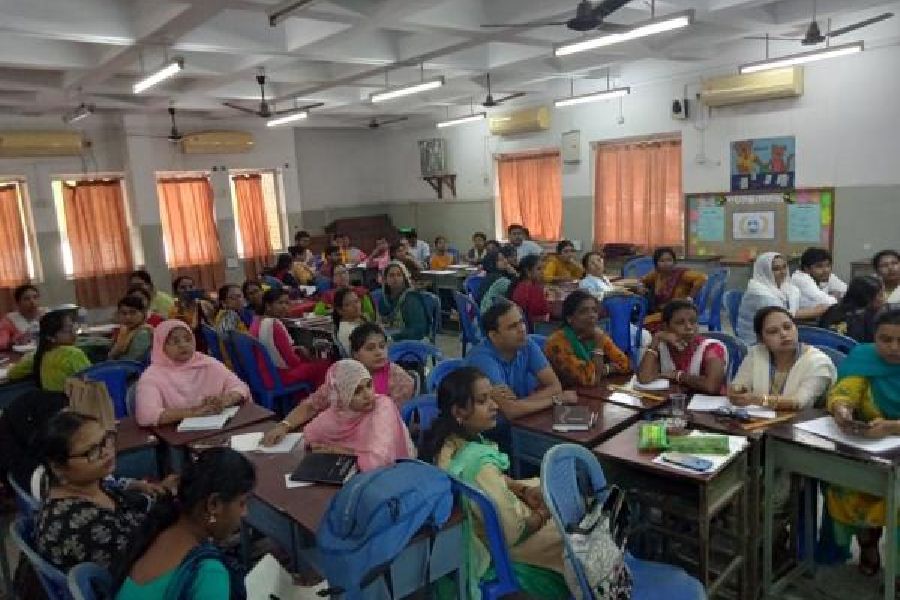- At a centre in Taki, North 24-Parganas, children cannot attend regular classes during monsoon because the river that they have to cross gets rough, said a teacher
- At Lakshmikantapur, South 24-Parganas, classes have to be scheduled in such a way that the children can help their parents with work before or after attending classes
Teachers who teach mostly first-generation learners with varied problems were recently trained in ways to help make learning “fun and innovative”.
The session in September at a city school was part of a series of training programmes that The Teachers’ Centre organises to upskill teachers to help them deliver better.
Most of the teachers who are trained do not have teaching aids like their counterparts in city schools. The Teachers’ Centre intends to enhance their skills so that they can deliver better.
“What we felt is that some of these schools are doing great work but are not getting enough support. Some of the teachers are keen on upgrading themselves and we are training them in skills that teachers in a regular school are exposed to,” said Ian Myers, president, The Progressive Educational Techniques Society, popularly known as The Teachers’ Centre.
The workshops focus on classroom management, skills in teaching languages and math and how to make teaching aids, among other areas. There are also sessions on addressing the emotional needs of the teachers and in turn of their children.
The centre is now working with five NGOs — one each in Lakshmikantapur, Taki and Masat (Diamond Harbour) and two in Kplkata.
The Teachers’ Centre was started in the late 1960s and registered as a society in 1974.
It had the patronage of stalwarts like Sister Cyril, John Mason, Uma Ahmad and Katie Dalal, who were members of the centre. Ahmad and Dalal are now among its governing body members.
The training sessions are part of the centre’s social outreach programme, said Myers.
Most of these teachers work with limited means, be it teaching aids or infrastructure.
“We encourage and teach them to make these teaching tools with whatever is available. That helps children relate to these tools better as well,” said Wendy Leyland, head of programme and logistics, of the centre.
It could be simple things like paper cuttings, clips or even wires, she said.
“We train them in the simple ways of teaching, whether it’s maths or English,” said Leyland.
During the training sessions, the teachers share the problems or difficulties that their children face and how the centres try to make adjustments.
Some of the children have to do odd jobs before or after they attend classes.
The workshops, too, have flexible timings because if the teachers are engaged elsewhere, the children might stop coming altogether.
Some of the teachers who attended the last session on maths and English in September said they were returning home richer.
“The workshop taught us some easy mathematical tricks that we can teach our students,” said Champa Bhandari, who teaches in Lakshmikantapur.
